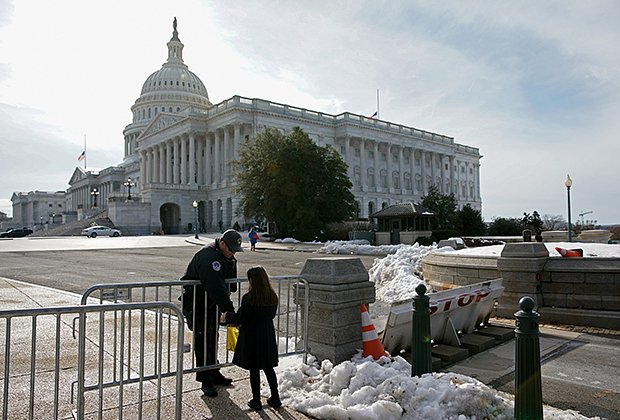Trump's defense is appealing a court's decision to deny him immunity from prosecution
Former American leader Donald Trump did not receive presidential immunity. The federal appeals court for the District of Columbia on Tuesday, February 6, rejected his claim of absolute immunity from prosecution in the 2021 Capitol storming case. This was reported by Reuters with reference to the court decision.
For purposes of this criminal case, former President Trump became Citizen Trump, with all the rights of defense of any other criminal defendant. But any executive immunity that might have protected him while he served as president no longer protects him from this prosecution.
Thus, legally, Trump has become an ordinary American citizen who is entitled to all types of protection and who can be tried. The immunity Trump claims to have as a former president no longer protects him from prosecution. This decision, which was made by a panel of three judges, was unanimous.
The document notes that if Trump's interference in the 2020 presidential election is proven, it would be an “unprecedented attack on the structure of government” of the United States.
It would be ironic if the President, who alone has the constitutional duty to “see that the laws are faithfully executed,” were the only official able to ignore those laws with impunity
The justices also rejected Trump's claim that denying him immunity would have a “chilling effect” on future presidents. “Previous presidents have recognized that they are subject to impeachment and criminal liability, at least under certain circumstances, so the ability to check executive power already exists,” the court concluded. Trump's defense, meanwhile, argued that if future leaders knew they could be indicted for “official acts” as president, they would be more reluctant to make decisions within the scope of their positions.
Photo: Ronda Churchill/Reuters
Trump appeals court decision denying him immunity
Donald Trump will be able to appeal the decision not to grant him immunity in the Supreme Court until February 12. In turn, Trump's trial in the case of attempting to seize the Capitol is scheduled for March 4, 2024. Trump spokesman Stephen Chung said the former US president will appeal the court's denial of immunity. “President Trump respectfully disagrees with the D.C. court's decision and will appeal to protect the presidency and the Constitution,” Chung said.
Lawyers for the 45th American leader added that such a decision could not be made against him, since he was in the status of president.
The former US president was charged with four counts and faces up to 50 years in prison
Donald Trump is charged with four counts, including conspiracy to defraud the United States, conspiracy to interfere with official proceedings, interference and attempted interference with official proceedings, and conspiracy to defraud. According to these charges, according to American law, Trump faces up to 50 years in prison.

Photo: Elizabeth Frantz/Reuters
The former president pleaded not guilty. He claims he worked to “ensure the integrity of elections” as part of his official authority as president and is therefore immune from prosecution. His lawyers also say Trump was acquitted by the Senate in impeachment proceedings, is protected by double jeopardy and cannot be charged by the Justice Department for the same actions.
The seizure of the Capitol building by Trump supporters occurred on his initiative on January 6, 2021, in order to prevent the vote count. The second impeachment trial against Trump was initiated in February 2021 after the riots in Washington. An attempt to remove a state leader from office after the end of his presidential term was made in the United States for the first time.
#Trump #denied #immunity #Capitol #storming #case #President
